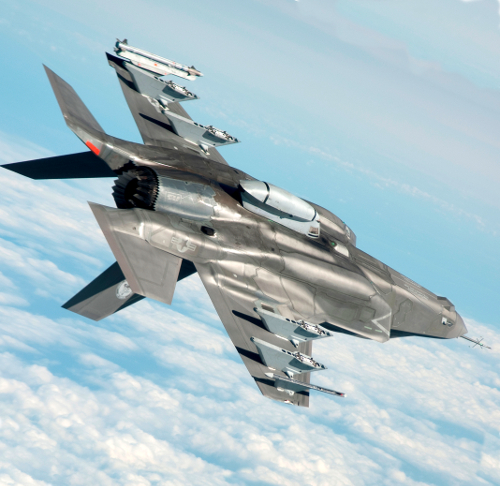Serious issues seem not to set back massive military spend
 Australia will likely spend billions on a Defence acquisition recently described as “unaffordable”, buying dozens of planes that currently cannot stay together for more than a few hours.
Australia will likely spend billions on a Defence acquisition recently described as “unaffordable”, buying dozens of planes that currently cannot stay together for more than a few hours.
The F-35 Joint Strike Fighter (JSF) is meant to be the smartest fighter jet of all time, theoretically avoiding radar detection while attacking land or air targets.
Among its innovations are software and visual improvements to provide a new range of data to pilots through a high-tech helmet-mounted display.
But a recent hearing of the US House Armed Services Committee has been told the planes come with serious reliability concerns.
“We've looked at the reliability too and it is a really big concern now - it's very risky,” US General Accounting Office's Michael Sullivan said.
The F-35 still being designed despite already being in production, and every delay will make the final product more expensive.
“Not just in terms of getting the unit costs down on the aircraft, but also in terms of the operating and support costs,” Sullivan said.
“The estimate now is deemed unaffordable...that's all got as much to do with reliability of the aircraft as anything else.
“This is a critical point,” he said.
California Democrat Loretta Sanchez said the F-35 could only handle about four hours of operation between “critical failures”, and that pieces are falling off the aircraft in many tests.
Lieutenant General Bogdan acknowledged this too, saying program bosses knew parts were coming off the aircraft “too frequently” for proper maintenance.
“The problem here is you're not going to see results in the next two to three months,” he said.
“It's going to take months and months and months of constant efforts to see this improve.
“Our goal is by 2015 to see the aircraft at 60 per cent [reliability].”
Australia currently has just two of its initial order of 14 F-35s, purchased at a reported price of around US$130 million.
Australia’s Federal Cabinet national security committee is rumoured to still endorse the program and is planning to allow the purchase of 58 F-35s next month, at a cost well over $7 billion.
But the hearing in the US was told that Italy, Turkey and Canada are considering delaying their purchases while the far-reaching problems are rectified.
“If those three partners choose to push airplanes out or reduce their buy, it will have an effect on all the other partners and the services buying the aircraft to the tune of about 2-3 per cent increase in price,” Lieutenant General Bogdan said.
A US Government Accountability Office report said the program cost for the US alone, including development and production of the planned 2,443 US aircraft is about A$424 billion, 68 per cent higher than predicted already.







 Print
Print